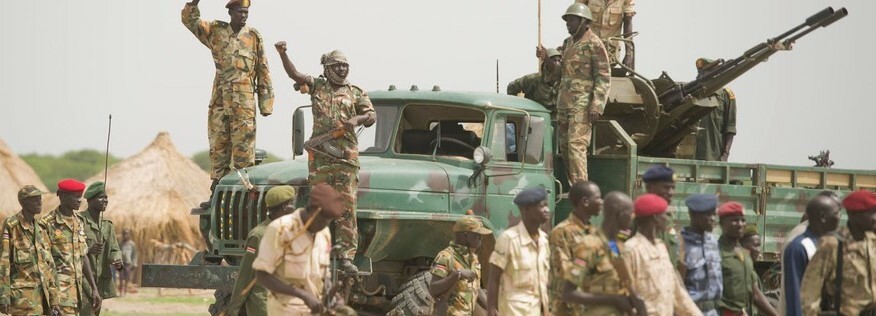The security sector in South Sudan is one of the leading sectors in budget allocation amid increasing demands for the provision of basic services and peace implementation.
The 2023/2024 draft budget presented to the National Legislature shows one of the largest budget allocations goes to the security sector.
The security sector includes the Ministry of Defense and Veterans Affairs, National Security Service, Disarmament Demobilization and Reintegration (DDR), Demining Authority and Financial Intelligence Unit.
The draft budget reviewed by Radio Tamazuj shows an estimated 1.8 trillion South Sudanese pounds (SSP), of which SSP182, 621, 370,424 has been earmarked for the security sector. The money allocated to the security sector accounts for more than 10% of the entire budget.
According to the draft budget, SSP143, 257, 799,826 has been allocated to the Ministry of Defense and Veterans Affairs. Of the amount, SSP121, 585,445, 436 will be used for wages and salaries for 262,148 staff. An amount of SSP 6,703,905,760 has been allocated to the capital expenditure of the Ministry of Defense.
According to the draft budget highlights for the Ministry of Defense, the budget covers salaries for the ministry staff, the SSPDF officers and other ranks, the transformation of the forces, implementation of the security arrangements, including management of cantonment sites, medical supplies and treatment and fuel and food supplies to the SSPDF forces.
The draft budget also allocates SSP38, 916,159,358 to the National Security Service (NSS). Of the amount, SSP33, 915, 889, 732 will be used for wages and salaries of an estimated 40,915 staff. In the previous budget, the NSS was allocated SSP11,758,355,588.
The exact strength of the SSPDF is however not clear as entire units of the army defected when war erupted in December 2013. Also, there have been reports of a corrupt and reprehensible practice of unscrupulous commanders maintaining ‘ghost’ soldiers on the payrolls of their units to cash in on monies. So, technically, the exact numbers of officers and men of the SSPDF remain hazy.
Also, during the years of turmoil, there have been many counter-defections from the SSPDF to rebel groups and vice versa.
It is widely believed that the security sector often circumvents accountability by using the excuse of classified expenditure.
To add a twist to all this, a parliamentarian who preferred anonymity due to the sensitive nature of the issue said the unified forces who graduated but have not yet been deployed, have not been included in the budget proposals. In the past, the SSPDF has been paid salaries but the unified forces have not.
In a past interview with Radio Tamazuj, SSPDF Spokesperson Brig. Gen. Lul Ruai said the soldiers from the SPLA-IO who are now part of the unified forces could not be paid because they were not provided for in the last fiscal budget.
Also, due to poor pay and delayed salaries in the past, many soldiers have become destitute and many have committed suicide because they failed to look after their families.
The 2023/2024 draft budget includes the increment of salaries by 400 percent as promised by President Salva Kiir last year.
The other pertinent issue is budgetary gaps and whether the transitional government actually has the money to fund the proposed budget.
The National Minister of Finance, Dier Tong Ngor, revealed recently that the 2023/2024 draft budget has a deficit of SSP 267,141,000,816.




